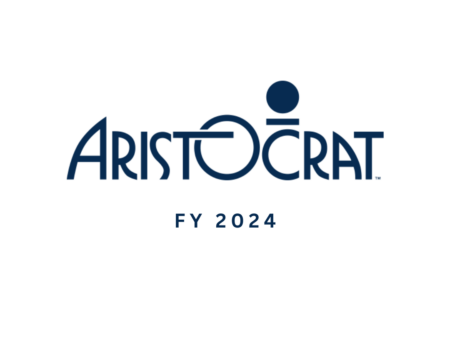In recent developments that have rocked North Carolina’s political landscape, a burgeoning corruption scandal has emerged, intertwining campaign donations with casino developments and implicating high-ranking state lawmakers and local officials. Former Rockingham County Commissioner Craig Travis has filed a lawsuit, shedding light on an intricate web of corruption, political maneuvering, and alleged campaign finance violations aimed at advancing a controversial casino project in Stokesdale.
Allegations of Misconduct and Defamation
Craig Travis’s lawsuit alleges serious misconduct and defamation against several prominent North Carolina officials and political entities. Central to the allegations are accusations of orchestrated efforts to defame Travis and undermine his election campaign due to his staunch opposition to pro-casino initiatives championed by the incumbent commissioners. The implications of these allegations could have far-reaching consequences for future casino projects across the state.
The lawsuit provides a detailed timeline dating back to August 2021, pinpointing the formation of NC Development Holdings, LLC, a Delaware-based entity led by Joseph Weinberg, CEO of Cordish Gaming Group. According to Travis, this entity played a pivotal role in a coordinated campaign involving substantial campaign contributions to influential legislators in North Carolina. These contributions, allegedly funneled through tax-exempt political organizations to bypass donation limits, are claimed to have swayed legislative decisions in favor of casino legalization efforts.
Influence of Campaign Contributions and Legislative Actions
Travis’s legal filing specifically cites the period between November 2022 and January 2023, during which executives from Cordish Gaming Group purportedly made maximum contributions to key lawmakers. The lawsuit contends that these financial contributions directly influenced legislative actions, including the commissioning of a favorable report by Spectrum Gaming Group endorsing the legalization of casinos in select North Carolina counties, including Rockingham.
Retaliation Against Casino Opponents
The controversy further unfolds with accusations that despite public opposition and concerns raised during county meetings, authorities overturned initial denials by the Rockingham County Planning Board regarding Cordish’s rezoning request. Travis asserts that dissenting members of the planning board were removed in retaliation for their votes against the casino project, illustrating a pattern of punitive actions against those opposing the venture.
Legal and Personal Ramifications
With damages sought exceeding $100,000, Travis claims that the defamatory attacks orchestrated against him not only cost him his election but also tarnished his reputation irreparably. The lawsuit contends that these actions were driven by vested interests in securing the lucrative casino deal and retaliating against Travis for exposing what he perceives as blatant misconduct within the political sphere.
Implications for Transparency and Accountability
As this scandal continues to unfold, it raises critical questions about the role of money in politics and the integrity of public officials in North Carolina. The alleged involvement of undisclosed financial contributions and politically motivated smear campaigns during Travis’s electoral campaign underscores the urgent need for enhanced transparency and accountability, particularly concerning contentious sectors such as the casino industry.
Conclusion: The North Carolina Corruption Scandal
The unfolding saga of the North Carolina corruption scandal highlights significant challenges within the state’s political and regulatory frameworks. It serves as a stark reminder of the potential pitfalls when financial interests intersect with public policy decisions, emphasizing the importance of robust oversight and adherence to ethical standards in governance.
FAQs About the North Carolina Corruption Scandal
1. What is the North Carolina corruption scandal about?
The scandal revolves around allegations of corruption, political manipulation, and campaign finance violations linked to efforts to establish a casino in Stokesdale, North Carolina.
2. Who is involved in the North Carolina corruption scandal?
The lawsuit filed by former Rockingham County Commissioner Craig Travis implicates high-ranking state lawmakers, local officials, and entities such as NC Development Holdings, LLC, led by Joseph Weinberg of Cordish Gaming Group.
3. What are the specific allegations in Craig Travis’s lawsuit?
Travis alleges that there was a coordinated effort to defame him and undermine his election campaign due to his opposition to pro-casino measures. He claims that significant campaign contributions were made to influence legislative decisions favoring casino legalization.
4. How did campaign contributions influence legislative actions?
According to the lawsuit, executives from Cordish Gaming Group allegedly made maximum contributions to key lawmakers, which Travis asserts swayed decisions such as commissioning favorable reports supporting casino legalization in specific North Carolina counties.
5. What repercussions did opponents of the casino project face?
Travis asserts that dissenting members of the Rockingham County Planning Board were removed in retaliation for opposing Cordish’s rezoning request, highlighting retaliatory actions against those who opposed the casino development.
6. What legal actions has Craig Travis taken?
Travis has filed a lawsuit seeking over $100,000 in damages, alleging defamation and misconduct by the defendants, claiming that these actions cost him his election and damaged his reputation.
7. What are the broader implications of the North Carolina corruption scandal?
The scandal underscores concerns about the influence of money in politics, transparency in governance, and the integrity of public officials, particularly in controversial sectors like the casino industry.
8. How does this scandal affect the regulatory landscape in North Carolina?
It emphasizes the need for enhanced transparency, accountability, and ethical standards in political and regulatory frameworks, particularly regarding financial contributions and decision-making processes.
9. What are the potential outcomes of the ongoing investigation into this scandal?
The investigation could lead to legal repercussions for those implicated, reforms in campaign finance laws, and changes in how regulatory decisions are made regarding casino developments in North Carolina.


















